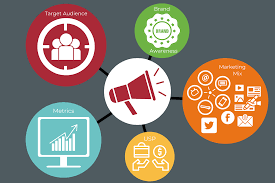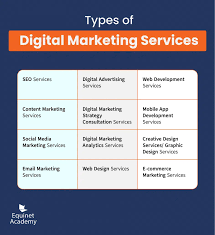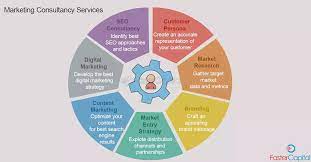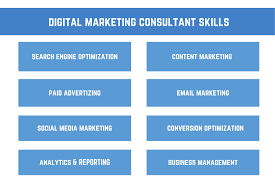Mastering the Art of Communication Strategy: Unlocking Success Through Effective Messaging
Communication Strategy: Unlocking Success Through Effective Communication
In today’s fast-paced and interconnected world, effective communication has become more critical than ever before. Whether it’s in business, politics, or personal relationships, the way we communicate can make or break our success. This is where a well-crafted communication strategy comes into play.
A communication strategy is a carefully planned approach to conveying messages and information to achieve specific objectives. It serves as a roadmap that guides an organization or individual in effectively reaching their target audience and achieving desired outcomes.
One of the key elements of a successful communication strategy is understanding your audience. By gaining insights into their needs, preferences, and expectations, you can tailor your message to resonate with them on a deeper level. This helps build trust and strengthens the connection between you and your audience.
Another crucial aspect of an effective communication strategy is choosing the right channels and mediums to deliver your message. With an abundance of digital platforms available today, it’s important to select those that align with your target audience’s preferences and habits. Whether it’s social media, email newsletters, press releases, or face-to-face interactions, each channel has its own strengths and should be utilized strategically.
Consistency is also key when it comes to communication strategy. A consistent message across all channels helps reinforce your brand identity and builds credibility over time. It ensures that your audience receives a cohesive experience that reflects your values and objectives.
Furthermore, a well-defined communication strategy takes into account potential challenges and risks that may arise along the way. By anticipating these obstacles, you can proactively address them through crisis communication plans or contingency measures. This demonstrates preparedness and professionalism even in times of uncertainty.
Measurement and evaluation are integral components of any successful communication strategy. Regularly monitoring key performance indicators allows you to assess the effectiveness of your efforts and make necessary adjustments if needed. This data-driven approach ensures that you are constantly improving and adapting to meet changing circumstances.
Lastly, a communication strategy should be agile and adaptable. In today’s rapidly changing world, it’s crucial to stay ahead of the curve and embrace new communication trends and technologies. By continuously learning and evolving, you can stay relevant and maintain a competitive edge.
In conclusion, a well-crafted communication strategy is essential for achieving success in any endeavor. It enables you to effectively connect with your audience, build strong relationships, and achieve desired outcomes. By understanding your audience, choosing the right channels, maintaining consistency, anticipating challenges, measuring results, and staying adaptable, you can unlock the power of effective communication and propel yourself towards success.
9 Frequently Asked Questions About Communication Strategy: A Comprehensive Guide for Effective Communication Planning in the UK
- What is a communication strategy?
- Why is a communication strategy important?
- How do you develop an effective communication strategy?
- What are the key components of a communication strategy?
- How do you identify and understand your target audience for a communication strategy?
- Which channels and mediums should be included in a communication strategy?
- How can consistency be maintained across different communication channels?
- How do you measure the success of a communication strategy?
- How can a communication strategy adapt to changing trends and technologies?
What is a communication strategy?
A communication strategy is a comprehensive plan that outlines how an organization or individual intends to effectively communicate with their target audience to achieve specific goals or objectives. It involves identifying key messages, selecting appropriate communication channels, and developing tactics to convey those messages in a consistent and impactful manner.
A communication strategy serves as a roadmap that guides the overall approach to communication efforts. It helps ensure that messages are clear, relevant, and resonate with the intended audience. By aligning communication activities with organizational goals, it enables effective engagement and fosters positive relationships with stakeholders.
The development of a communication strategy typically involves several key steps. These include:
- Setting objectives: Clearly defining what you want to achieve through your communication efforts. This could be raising awareness, influencing public opinion, promoting a product or service, managing a crisis, or any other specific goal.
- Identifying target audience: Understanding who your intended audience is and gaining insights into their needs, preferences, values, and behaviors. This helps tailor messages and select appropriate channels that will effectively reach and engage them.
- Crafting key messages: Developing concise and compelling messages that convey the desired information or call-to-action. Messages should be aligned with the organization’s values and objectives while considering the interests of the target audience.
- Selecting communication channels: Determining the most effective channels through which to deliver your messages based on your target audience’s preferences and habits. This could include traditional media outlets (such as newspapers or television), digital platforms (such as websites or social media), direct interactions (such as meetings or events), or a combination of various channels.
- Developing tactics: Creating specific activities or initiatives that support the overall strategy and help deliver key messages effectively. Tactics may include content creation (such as articles, videos, or infographics), public relations campaigns, social media engagement strategies, events planning, internal communications initiatives, and more.
- Implementing and evaluating: Executing the communication strategy and regularly monitoring its effectiveness. This involves measuring key performance indicators, analyzing data, and making adjustments as necessary to ensure the strategy remains aligned with goals and objectives.
A well-executed communication strategy enhances an organization’s reputation, builds trust with stakeholders, supports business objectives, and helps navigate challenges effectively. It is a dynamic process that requires continuous evaluation and adaptation to stay relevant in an ever-changing communication landscape.
Why is a communication strategy important?
A communication strategy is important for several reasons:
- Clarity and Focus: A well-defined communication strategy helps organizations and individuals clarify their goals, objectives, and key messages. It provides a clear direction for all communication efforts, ensuring that everyone is working towards the same vision. This focus helps avoid confusion and ensures consistency in messaging.
- Audience Understanding: A communication strategy requires a deep understanding of the target audience. By conducting research and analysis, organizations can gain insights into their audience’s needs, preferences, and behaviours. This knowledge allows them to tailor their messages effectively, increasing the chances of resonating with the intended recipients.
- Building Trust and Relationships: Effective communication builds trust and fosters strong relationships with stakeholders, whether they are customers, employees, investors, or the wider community. A well-crafted strategy helps establish credibility by consistently delivering relevant and reliable information. Trust is crucial for long-term success and loyalty.
- Reputation Management: Communication strategies play a vital role in managing an organization’s reputation. By proactively communicating transparently during times of crisis or change, organizations can mitigate potential damage to their reputation. A carefully planned crisis communication strategy can help maintain trust even in challenging situations.
- Increased Efficiency: Having a communication strategy streamlines processes by providing guidelines on how to communicate internally and externally. It ensures that resources are allocated effectively, avoiding duplication of efforts or miscommunication within teams. This efficiency saves time and resources while maximizing the impact of communication efforts.
- Adaptability to Change: A dynamic communication strategy allows organizations to adapt to changing circumstances such as technological advancements or shifts in consumer behaviour. By staying abreast of industry trends and evolving communication channels, organizations can remain relevant and effectively reach their target audience.
- Measurable Results: A well-designed communication strategy includes measurable objectives that allow organizations to assess the effectiveness of their efforts accurately. By tracking key performance indicators (KPIs), such as engagement levels, website traffic, or media coverage, organizations can evaluate the impact of their communication activities and make data-driven decisions for improvement.
In summary, a communication strategy is essential because it provides clarity, focuses efforts, builds trust, manages reputation, increases efficiency, adapts to change, and allows for measurable results. It serves as a roadmap that guides organizations and individuals towards effective communication practices that achieve desired outcomes and contribute to overall success.
How do you develop an effective communication strategy?
Developing an effective communication strategy requires careful planning and consideration. Here are some key steps to guide you in the process:
- Define your objectives: Start by clearly identifying what you want to achieve through your communication efforts. Whether it’s increasing brand awareness, driving sales, or improving internal collaboration, having specific objectives will help shape your strategy.
- Understand your audience: Conduct thorough research to gain insights into your target audience. Understand their demographics, needs, preferences, and communication habits. This knowledge will allow you to tailor your messages and choose the most effective channels to reach them.
- Craft key messages: Develop clear and concise messages that align with your objectives and resonate with your audience. These messages should be consistent across all communication channels and reflect your brand’s unique value proposition.
- Choose appropriate channels: Determine the most suitable communication channels based on your target audience’s preferences and habits. Consider a mix of traditional media, digital platforms, social media, email marketing, events, and face-to-face interactions. Each channel should serve a specific purpose in delivering your messages effectively.
- Develop a content plan: Create a content calendar that outlines the topics, formats, and timelines for delivering your messages. This ensures consistency in providing valuable content to engage and inform your audience.
- Establish a crisis communication plan: Anticipate potential challenges or crises that may arise and develop a plan to address them effectively. Identify potential risks, prepare key messaging for different scenarios, establish designated spokespersons if needed, and define protocols for managing crises promptly.
- Allocate resources: Determine the necessary resources – both human and financial – required to implement your communication strategy effectively. Ensure that you have the right team members with appropriate skills and expertise to execute the plan.
- Implement and monitor: Put your communication strategy into action according to the defined timeline and content plan. Regularly monitor key performance indicators (KPIs) such as engagement metrics, reach, conversions, and feedback to evaluate the effectiveness of your strategy.
- Evaluate and adapt: Continuously assess the results of your communication efforts and make adjustments as needed. Analyze data, gather feedback from your audience, and stay informed about emerging trends and technologies to refine your strategy for continuous improvement.
Remember, an effective communication strategy is not a one-time effort but an ongoing process that requires flexibility and adaptation to changing circumstances. By following these steps and remaining agile in your approach, you can develop a communication strategy that drives positive outcomes and helps you achieve your objectives.
What are the key components of a communication strategy?
A communication strategy comprises several key components that work together to ensure effective and impactful communication. These components include:
- Goals and Objectives: Clearly defined goals and objectives are the foundation of a communication strategy. They outline what you aim to achieve through your communication efforts, whether it’s increasing brand awareness, driving sales, enhancing reputation, or promoting a specific message.
- Target Audience: Identifying and understanding your target audience is crucial for tailoring your messages appropriately. Conducting research to gain insights into their demographics, preferences, needs, and behaviours helps you create communication that resonates with them.
- Key Messages: Key messages are the core ideas or information you want to convey to your audience. They should be concise, memorable, and aligned with your overall goals. Crafting compelling key messages ensures consistency across all communication channels.
- Communication Channels: Choosing the right channels to reach your target audience is essential. It could include traditional media (print, TV, radio), digital platforms (websites, social media), direct marketing (email campaigns), events, or face-to-face interactions. Selecting the most effective channels based on your audience’s preferences maximizes the impact of your message.
- Content Strategy: Developing a content strategy involves creating engaging and relevant content that aligns with your key messages and resonates with your target audience. This includes written content (articles, blog posts), visual elements (infographics, videos), and interactive experiences that capture attention and deliver value.
- Timing and Frequency: Determining when and how often to communicate is crucial for maintaining engagement without overwhelming your audience. Consistency in timing helps build anticipation while avoiding long gaps between communications ensures you stay top-of-mind.
- Stakeholder Engagement: Identifying key stakeholders who have an interest in or influence over your organization is important for effective communication strategy implementation. Engaging with stakeholders through tailored messaging can help build relationships, address concerns, and foster support.
- Measurement and Evaluation: Establishing metrics and evaluation methods allows you to assess the success of your communication efforts. Key performance indicators (KPIs) might include website traffic, social media engagement, media mentions, or customer feedback. Regular evaluation helps identify areas for improvement and ensures your strategy remains effective.
- Crisis Communication Plan: It’s essential to have a crisis communication plan in place to address potential issues or emergencies that could impact your organization’s reputation. This plan outlines how to respond, who should be involved, and the communication channels to be utilized during a crisis.
By considering these key components when developing a communication strategy, you can ensure that your messages are targeted, consistent, and impactful, ultimately helping you achieve your goals and build strong relationships with your audience.
How do you identify and understand your target audience for a communication strategy?
Identifying and understanding your target audience is crucial for developing an effective communication strategy. By gaining insights into their needs, preferences, and behaviors, you can tailor your message to resonate with them on a deeper level. Here are some steps to help you identify and understand your target audience:
- Research and gather data: Conduct thorough market research to gather demographic information such as age, gender, location, income level, education, and occupation. This data provides a foundation for understanding who your potential audience is.
- Analyze psychographics: Dive deeper into your audience’s motivations, values, attitudes, interests, and lifestyle choices. This information helps you understand their mindset and how they perceive the world around them.
- Identify pain points and needs: Determine the challenges or problems that your target audience faces. Understanding their pain points allows you to position your communication strategy as a solution that addresses their specific needs.
- Study competitors: Analyze your competitors’ target audience to identify any overlaps or gaps in the market. This helps you differentiate yourself and tailor your communication strategy to stand out from the crowd.
- Use customer feedback: Engage with existing customers through surveys, interviews, or social media listening tools to gain insights into their experiences and preferences. Their feedback can provide valuable information about what resonates with them and how they perceive your brand.
- Create buyer personas: Develop fictional representations of your ideal customers based on the gathered data and insights. These personas should encompass key characteristics of your target audience such as demographics, psychographics, goals, challenges, preferences, and behaviors.
- Test and refine: Implement different communication strategies across various channels and monitor the response from different segments of your target audience. Measure engagement levels, conversion rates, or any other relevant metrics to determine which strategies are most effective.
Remember that understanding your target audience is an ongoing process as consumer behaviors evolve over time. Regularly review and update your research to stay in tune with their changing needs and preferences. By continuously refining your understanding of your target audience, you can develop communication strategies that truly resonate and drive meaningful results.
Which channels and mediums should be included in a communication strategy?
When developing a communication strategy, it’s important to consider a mix of channels and mediums that align with your target audience and objectives. Here are some common channels and mediums to include:
- Digital Platforms: In today’s digital age, having an online presence is crucial. This includes websites, social media platforms (such as Facebook, Twitter, LinkedIn, Instagram), blogs, and online forums. These channels allow for direct interaction with your audience and provide opportunities for engagement and sharing of information.
- Email Marketing: Email newsletters or campaigns can be an effective way to reach a targeted audience directly. It allows for personalized messaging and can be used to share updates, promotions, or valuable content.
- Press Releases: Press releases are an important tool for reaching journalists and media outlets. They help disseminate news about your organization or brand to a wider audience.
- Media Relations: Building relationships with journalists and media professionals can help secure coverage in newspapers, magazines, TV shows, radio programs, podcasts, or online publications.
- Public Speaking Engagements: Speaking at conferences, industry events, or webinars can position you as an expert in your field and provide an opportunity to connect with a live audience.
- Content Marketing: Creating valuable content such as articles, videos, infographics, or podcasts can attract and engage your target audience while establishing thought leadership.
- Internal Communication Channels: Effective communication within your organization is just as important as external communication. Consider using internal newsletters, intranets, team meetings, or collaboration tools to ensure consistent messaging among employees.
- Community Engagement: Engaging with local communities through sponsorships, partnerships with non-profit organizations or participating in community events can enhance brand reputation and foster positive relationships.
- Customer Relationship Management (CRM) Systems: Utilizing CRM systems allows you to manage customer data effectively while enabling personalized communication tailored to their needs.
- Traditional Media Outlets: While digital channels are prevalent, traditional media outlets like newspapers, magazines, radio, and TV still reach a significant audience. Depending on your target demographic and objectives, including these outlets in your strategy may be beneficial.
Remember, the selection of channels and mediums should be based on your specific audience preferences, communication goals, available resources, and industry dynamics. Regular evaluation and adaptation of your communication strategy will help ensure that you are effectively reaching your target audience through the most relevant channels.
How can consistency be maintained across different communication channels?
Maintaining consistency across different communication channels is crucial for reinforcing your brand identity and ensuring a cohesive experience for your audience. Here are some key strategies to achieve consistency:
- Develop a Brand Style Guide: Create a comprehensive brand style guide that outlines your brand’s visual elements, tone of voice, messaging guidelines, and key brand attributes. This guide will serve as a reference for anyone involved in creating content across different channels, ensuring that everyone understands and adheres to the established brand standards.
- Use Consistent Visual Elements: Establish consistent visual elements such as logo usage, color palette, typography, and imagery guidelines. Apply these elements consistently across all communication channels, including your website, social media profiles, email templates, print materials, and any other touchpoints with your audience.
- Craft a Core Message: Identify the core message or value proposition that you want to convey consistently across all channels. This message should be clear, concise, and aligned with your brand identity. Use it as a foundation for all your communication efforts.
- Tailor Content for Each Channel: While consistency is important, it’s also essential to adapt content to fit the specific requirements and nuances of each communication channel. Tailor the format and tone of your message to suit the platform while maintaining the core essence of your brand.
- Create Content Guidelines: Develop guidelines specifically for each communication channel or medium to ensure consistency in content creation. Include instructions on writing style, formatting guidelines, recommended hashtags or keywords (for social media), and any other relevant considerations.
- Establish Approval Processes: Implement an approval process where content creators submit their work for review before publishing it on different channels. This allows designated stakeholders to ensure that the content aligns with the established brand guidelines and maintains consistency.
- Provide Training and Resources: Offer training sessions or workshops to educate team members involved in content creation about the importance of consistency across channels. Provide them with resources such as templates, examples, and access to the brand style guide to assist them in creating consistent content.
- Regularly Review and Update: Consistency is not a one-time effort; it requires ongoing monitoring and review. Regularly assess your communication channels to ensure that they align with your brand guidelines and update them as necessary to adapt to evolving trends or changes in your brand identity.
By implementing these strategies, you can maintain consistency across different communication channels, reinforcing your brand identity and delivering a cohesive experience to your audience. Consistency builds trust, strengthens relationships, and enhances the effectiveness of your communication efforts.
How do you measure the success of a communication strategy?
Measuring the success of a communication strategy is crucial to assess its effectiveness and make informed decisions for future improvements. While the specific metrics may vary depending on the objectives and nature of the strategy, here are some common ways to measure its success:
- Key Performance Indicators (KPIs): Identify specific KPIs that align with your communication goals. These can include metrics such as website traffic, social media engagement (likes, shares, comments), email open rates, conversion rates, customer satisfaction scores, media mentions, or brand sentiment analysis. Tracking these indicators over time provides insights into the impact of your communication efforts.
- Surveys and Feedback: Collecting feedback from your target audience through surveys or interviews can provide valuable qualitative data. It helps gauge their perception of your messaging, brand image, and overall communication effectiveness. This feedback can highlight areas of improvement or validate the success of certain strategies.
- Media Monitoring: Keep track of media coverage related to your organization or campaign. Analyze factors such as reach, tone (positive/negative/neutral), key messages conveyed in the coverage, and share of voice compared to competitors. This helps evaluate the extent to which your messages are reaching and influencing your target audience.
- Social Media Analytics: Utilize analytics tools provided by social media platforms to measure engagement metrics like reach, impressions, likes, shares, comments, and click-through rates. These indicators reflect how well your content resonates with your audience and whether it drives desired actions.
- Website Analytics: Analyze website traffic data using tools like Google Analytics to understand how visitors engage with your content. Look at metrics such as page views, time spent on site, bounce rate (percentage of visitors who leave after viewing only one page), and conversion rates if applicable (e.g., form submissions or purchases). These insights help you assess the effectiveness of website content in conveying messages and achieving desired outcomes.
- Return on Investment (ROI): Evaluate the financial impact of your communication strategy. Compare the costs incurred, such as advertising spend, PR agency fees, or content creation expenses, with the achieved outcomes. This could include revenue generated, cost savings, increased customer acquisition or retention rates, or improved brand perception.
Remember that measuring success should align with your specific communication goals and objectives. Regularly review and analyze the collected data to identify trends, strengths, weaknesses, and areas for improvement. By continuously monitoring and adapting your communication strategy based on these insights, you can optimize its effectiveness over time.
How can a communication strategy adapt to changing trends and technologies?
Adapting a communication strategy to changing trends and technologies is crucial to staying relevant and effective in today’s dynamic landscape. Here are some strategies to ensure your communication strategy remains adaptable:
- Stay informed: Keep a pulse on the latest trends and technologies in the communication industry. Regularly research and stay updated on emerging platforms, tools, and channels that can enhance your communication efforts.
- Conduct audience research: Continuously gather insights about your target audience’s preferences, behaviors, and communication habits. This will help you identify new channels or technologies that resonate with them.
- Embrace new platforms: Be open to exploring new communication platforms and channels that align with your target audience’s preferences. For example, if you find that your audience is increasingly active on a specific social media platform or using messaging apps, consider incorporating these platforms into your strategy.
- Experiment and test: Don’t be afraid to experiment with new approaches or technologies within your communication strategy. Conduct small-scale tests or pilot projects to gauge their effectiveness before fully integrating them into your overall strategy.
- Monitor analytics: Utilize data analytics tools to track the performance of your communication efforts across different channels. Analyze metrics such as engagement rates, click-through rates, conversions, and feedback from your audience to understand which strategies are working and which need adjustment.
- Seek feedback: Regularly seek feedback from your audience through surveys, interviews, or social media interactions. This will provide valuable insights into their evolving needs and expectations, allowing you to adapt accordingly.
- Foster a culture of innovation: Encourage creativity and innovation within your team by providing opportunities for brainstorming sessions or cross-functional collaborations. Emphasize the importance of staying ahead of trends and embracing new technologies in your organization’s communication strategy.
- Invest in training: Provide ongoing training for yourself and your team members on emerging trends, technologies, and best practices in the field of communications. This will ensure that you have the necessary skills and knowledge to adapt your strategy effectively.
- Collaborate with experts: Consider partnering with communication consultants or agencies who specialize in staying up-to-date with industry trends and technologies. Their expertise can help you navigate the ever-changing communication landscape and identify innovative strategies.
By proactively monitoring trends, embracing new technologies, and maintaining a flexible mindset, your communication strategy can adapt to changing dynamics and continue to deliver impactful results in an evolving digital age.









